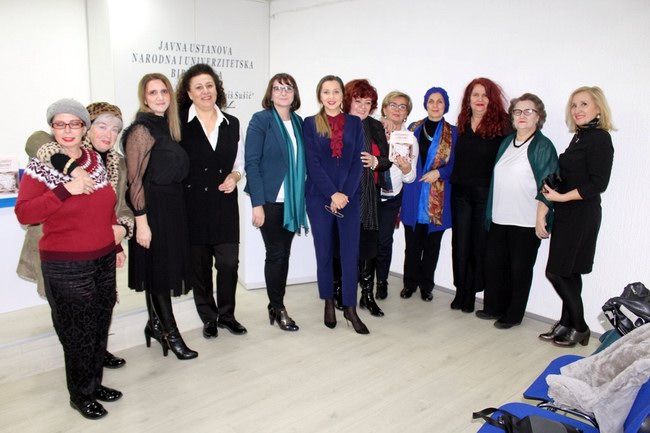December 2019
BOOK LAUNCH – THE BOSNIAN LABYRINTH: CULTURE, GENDER AND LEADERSHIP' IN TUZLA

A leader is not born, a leader is made. This is a well-known conclusion of international research on leadership, and it has been confirmed with the first comparative research project on leadership, politics and business titled "Bosnian labyrinth: culture, gender and leadership", edited by professor Zilka Spahić Šiljak and coauthored by dr. Suada Penava and professor Jasna Kovačević. The second launch of this book was organized in cooperation with the National and University Library "Derviš Sušić" in Tuzla and the association of female citizens "Feminine Vision" on December 12, 2019. The launch was moderated by Mirna Trifković, library director, and the promoters were: professor Adisa Delić from the Faculty of Economics of University of Tuzla, Ernesa Mešić, sociology professor and specialist for psychosocial rehabilitation, and mr.sci. Sanja Hajdukov, a successful author and founder of Erazmo educational center.
The book is the result of research conducted with BiH leaders from the realm of politics and business between 2015 and 2018.
The labyrinth women go through while they are climbing their way up to positions of leadership, but frequently even after that, because obstacles still exist, is burdened with gender stereotypes and autostereotypes, as well as a masculine organizational culture that is often hostile towards women. Women still display a lower level of self-confidence than men, regardless of how educated or skilled they are.
Although there are no significant differences in leadership style between men and women, as well as no differences in leadership effectiveness, the greatest problems lie in cultural norms and the incompatibility of gender and leadership roles. Leaders are expected to have agency and be enterprising, decisive and focused on the task in front of them, while women are expected to have empathy and be caring as well as focused on establishing communication. If a woman attempts to exhibit leadership characteristics, she is labeled a shrew who forgets the virtues of her sex. However, as professor Spahić Šiljak pointed out, women make up more than half the world's population and have a great capacity to contribute to the advancement of society as a whole. It is a shame their intellectual potential remains underutilized.























